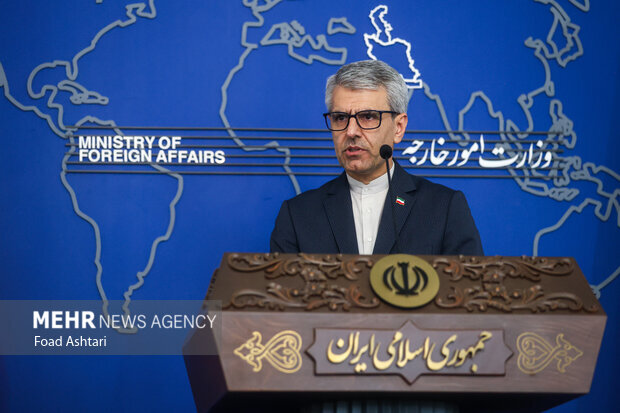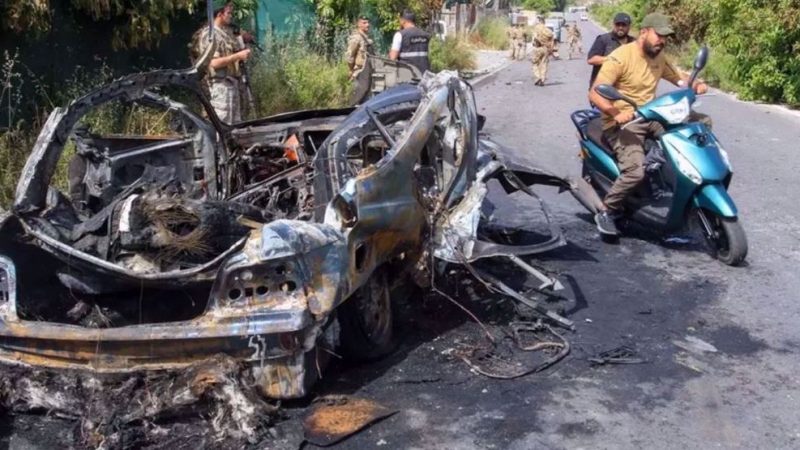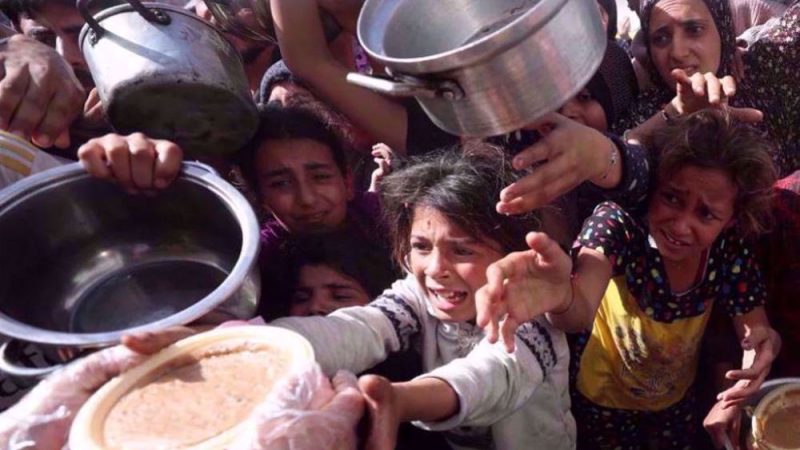A war within: PTSD and suicides fuel manpower crisis in Israeli military amid Gaza genocide
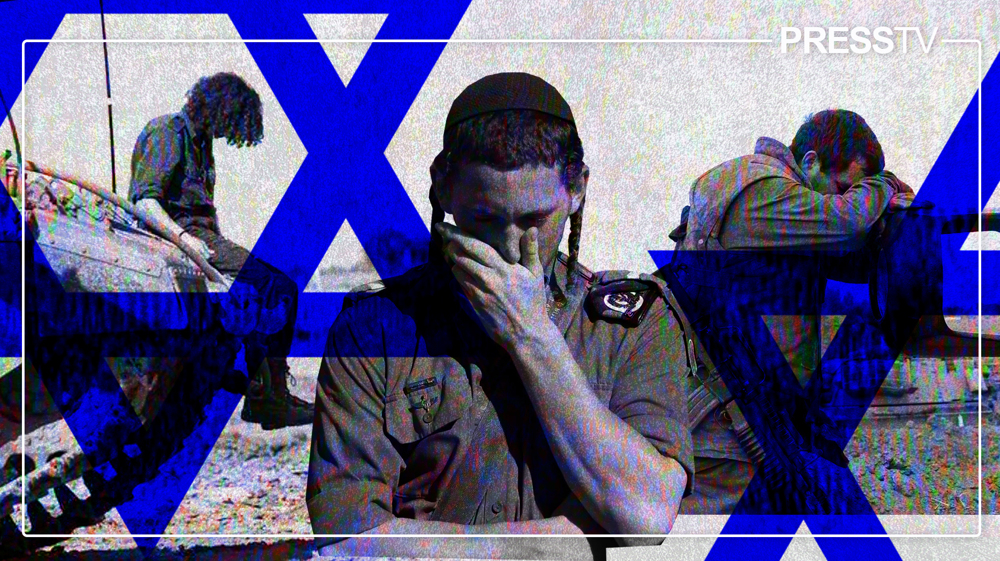
By Alireza Akbari
At least one in eight Israeli military reservists is now considered mentally unfit to return to Gaza, as post-traumatic stress disorder (PTSD) surges among occupation forces stretched thin by 19 months of genocidal war.
A new study published by Tel Aviv University, focusing on young Israeli reservists, reveals that approximately 12 percent of them are now suffering from severe symptoms of PTSD, rendering them incapable of further military duties.
These findings come at a time when Israel’s military is facing increasing international scrutiny and growing internal strain. With morale among reservists plummeting, the psychological toll of the long-running genocidal war is becoming increasingly difficult to manage.
The researchers behind the study warned that the alarmingly soaring trauma rates among returning soldiers could pose a long-term threat to the military’s readiness.
They say the war on Gaza is no longer only devastating its victims, but it is also now beginning to haunt those who carry out the genocidal war crimes in the besieged Palestinian territory.
Since the launch of Israel’s war on Gaza, more than 53,000 Palestinians have been killed, and over 119,000 have been injured, according to Gaza’s Health Ministry.
The real figures are much higher and unaccounted for, as tens of thousands continue to be trapped under the rubble of buildings destroyed in Israeli bombardments.
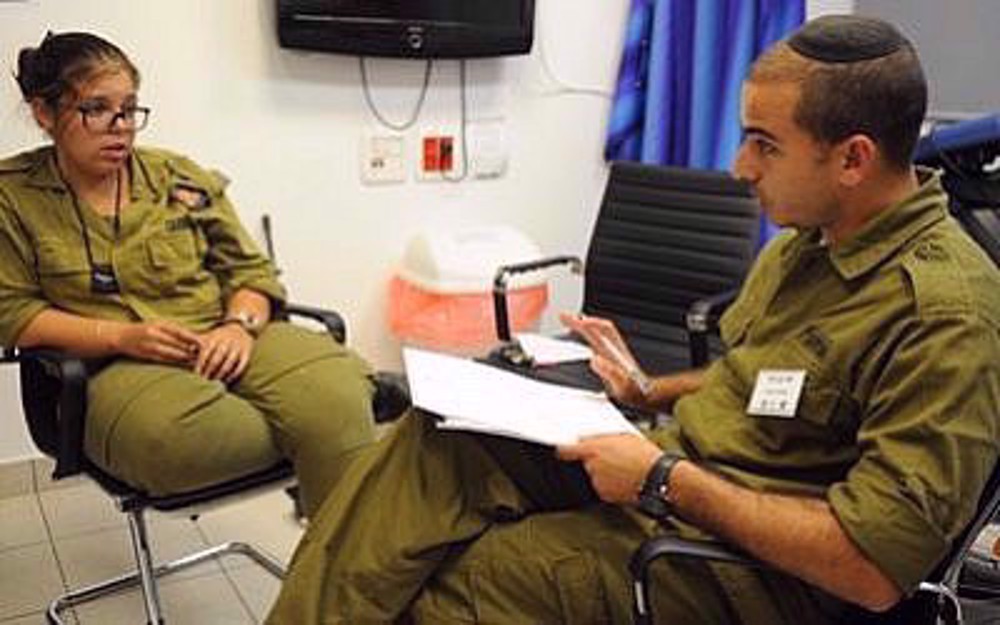
Before this study exposed the Israeli military’s deepening mental health crisis and manpower shortage, a senior American official had already cautioned that Israel risked facing severe consequences for rejecting a ceasefire and captive-prisoner exchange in Gaza.
The warning, delivered in early May during discussions between American officials and the families of Israeli captives held in Gaza, sharply criticized Israel’s negotiation stance.
The unnamed US official pointed out that Israel’s refusal to end its military assault had already cost lives and could exact an even higher toll if the ceasefire was not reached.
“If until now the hostages (captives) have paid the price for Israel not ending the war,” the official noted, “today the price will be much heavier for Israel—and not just for the hostages.”
The manpower crisis had already been quietly acknowledged within the Israeli military.
In the 17th month of Israel’s genocidal war on Gaza, Attorney General Gali Baharav-Miara urged then-minister of military affairs Yoav Gallant to take “urgent action” against widespread draft evasion.
In a formal letter, she referred to a high-level meeting on conscription and warned that recruitment targets for ultra-Orthodox men had not been met, signaling deeper divisions within the military structure.
Just a week before her appeal, Israel’s finance ministry took steps to prevent ultra-Orthodox families from avoiding penalties for draft evasion.
The proposed measures included suspending daycare subsidies for families whose eligible members refused to enlist, signaling growing frustration over selective compliance with military duty.
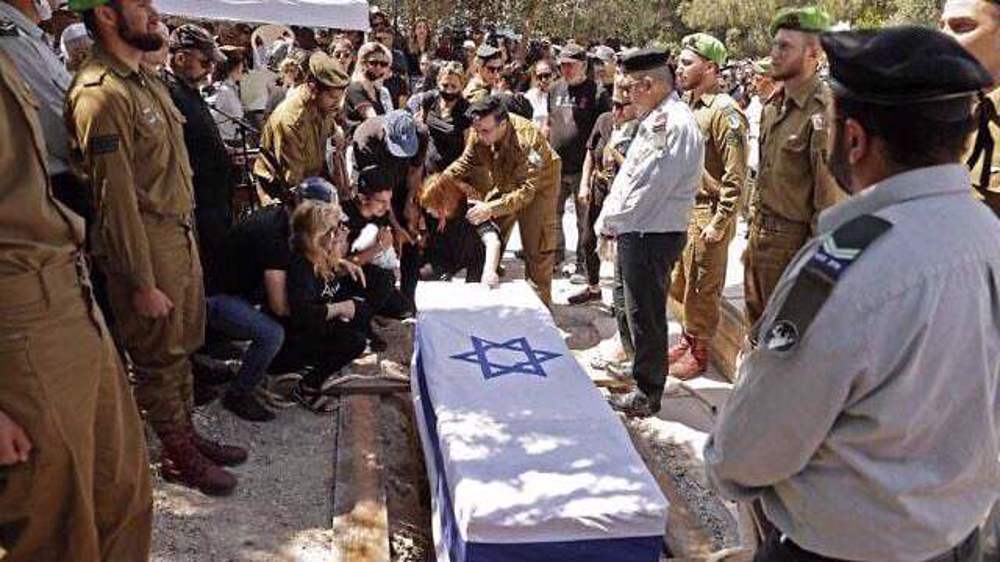
Two months before the attorney general’s intervention, the Israeli military quietly acknowledged a troubling trend: a noticeable increase in suicides among its soldiers since the launch of the no-holds-barred war on October 7, 2023.
New military data reveals that 38 Israeli soldiers are suspected to have died by suicide in 2023 and 2024, with 28 of those cases occurring after the onset of Israel’s war on Gaza in October 2023.
These figures represent a sharp rise compared to 2022, when 14 soldiers died by suicide, and 2021, when the Israeli military recorded 11 such cases, the leading cause of death among soldiers that year.
The suspected suicides, all involving male soldiers, span the full range of military service. In 2023, the Israeli military confirmed 17 cases, including seven conscripts, four career soldiers, and six reservists.
By 2024, the number climbed to 21, with 12 of those suicides occurring among reservists, a group particularly vulnerable to the psychological toll of prolonged deployments.
In 2024, the rise in suicides among Israeli forces prompted growing concern within the military, with officials, though tight-lipped publicly, acknowledging the deepening mental health crisis, especially among conscripts and reservists exposed to extended military duties in Gaza.

The genocidal war has already made 2023 and 2024 among the deadliest years for the Israeli occupation forces in decades. In 2023 alone, 558 soldiers died, 512 of them directly in the course of genocide in Gaza, as acknowledged by human rights groups worldwide.
Other fatalities included 16 deaths from accidents, such as training mishaps, vehicle crashes, and an accidental weapon discharge, along with 10 deaths from various illnesses.
By late November 2024, over a year into the war on Gaza, signs of profound psychological strain began to surface. Reports of PTSD among both conscripts and reservists multiplied, reflecting the toll of the prolonged conflict.
As the Israeli military faces an acute manpower crisis, the effects of the war are no longer confined to the battlefield. In September 2024, the Israeli military opened a second front in Lebanon with air raids and ground incursions.
However, back in the occupied territories, soldiers were refusing to rejoin the military, with only 15 percent of reservists reporting for duty, according to Israeli media.
In response, the regime extended the mandatory military duty of 350,000 reservists through the end of 2024. However, this move sparked widespread backlash.
Among those resisting the call were 15 soldiers from the elite Paratroopers Brigade, who had completed missions in Gaza’s Deir al-Balah and Khan Younis, two of the most ravaged areas amid the genocidal war.
They refused redeployment, citing trauma, family hardship, and psychological exhaustion.

On October 24, 2024, the Jerusalem Post published a rare report exposing the mental collapse of regime soldiers returning from the front lines.
The highlight of the report focused on the case of Eliran Mizrahi, a 40-year-old D9 bulldozer operator who spent six months spiraling into silence after returning from Gaza, where he had participated in some of the regime’s most destructive acts of aggression.
Plagued by insomnia and violent outbursts, Mizrahi ultimately took his own life just months before his next scheduled deployment. His family described him as “shattered,” tormented by the atrocities he had witnessed and carried out.
Mizrahi’s death is no longer an isolated tragedy. His story has been echoed by others, such as Guy Zaken, a fellow bulldozer driver, who shared his haunting experience with CNN.
Ordered to “run over” people during acts of aggression in Gaza, Zaken admitted that he “no longer eats meat,” describing the horror of crushing “dead and alive in the hundreds.”
“When you see a lot of meat outside, and blood… both ours and theirs,” he said, “then it really affects you when you eat.”
According to the Israeli daily Yedioth Ahronoth, at least six more soldiers have taken their own lives as the genocidal war on Gaza and Lebanon drags on.
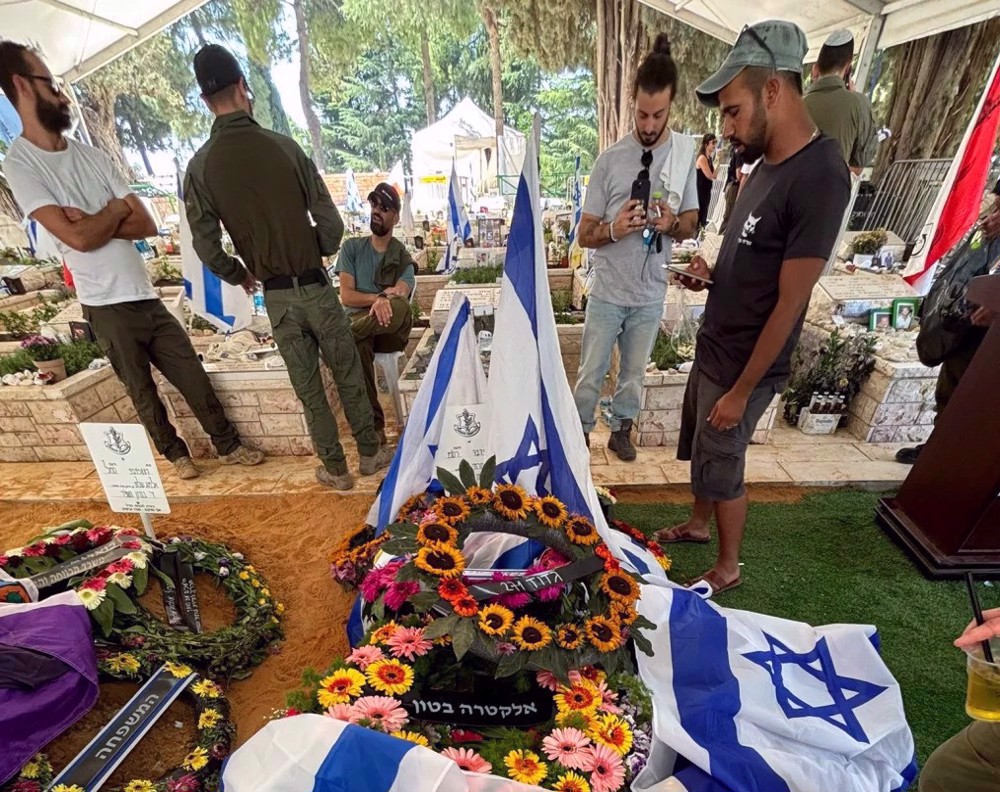
Behind these gory numbers lies a quieter epidemic. Thousands of regime soldiers have sought help from military clinics and field psychologists, with one-third of them showing symptoms of PTSD.
The actual suicide toll, reports suggest, may be even higher than the official numbers indicate.
In an interview with Haaretz in March, Lucian Tatsa-Laur, head of the Israeli military’s mental health division, warned that the full scale of the crisis would only become evident “once military operations are completed, and troops return to normal life.”
As mental health issues surged among Israeli occupation forces, the Israeli ministry of military affairs’ “rehabilitation department” reported receiving at least 12,000 soldiers since the launch of the war in October 2023, many of whom were diagnosed with PTSD.
Of those seeking help, 43 percent were diagnosed with PTSD, while the remainder included those suffering from moderate to severe physical injuries, 23 soldiers with head trauma, 60 amputees, and 12 who lost their vision permanently.
The psychological strain has not been confined to the battlefield. Families of traumatized soldiers have also experienced its fallout.
Yedioth Ahronoth quoted the wife of a reservist who revealed the harrowing toll: “My husband tried to strangle me at night. Later I learned he was suffering from untreated war trauma.”
Now in its 19th month, the war on Gaza continues to take a heavy psychological toll, particularly on reservists who never expected such a prolonged, genocidal campaign.
Reports of strained marriages and threatened divorces have also become increasingly common, as spouses struggle with long absences and the emotional wreckage that soldiers bring home.

